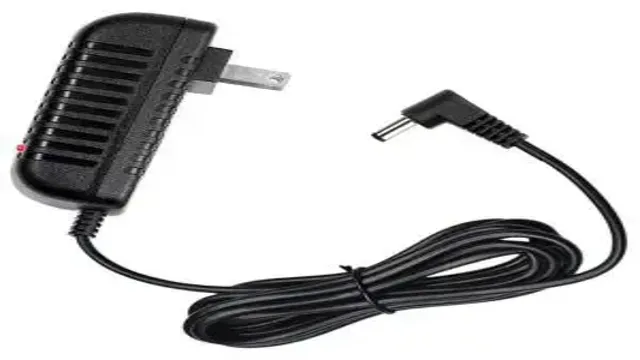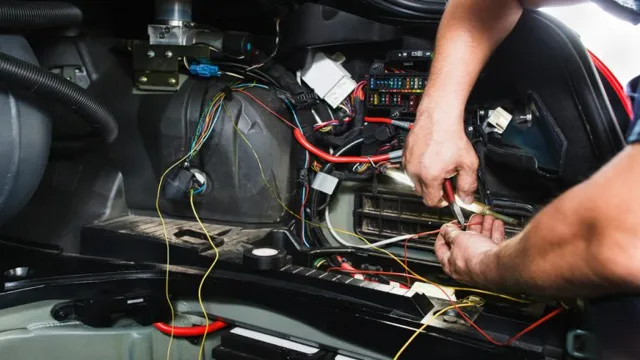Why your electric car loses power in the cold: The truth about electric car batteries
When it comes to electric cars, the battery is the heart of the vehicle. Without it, the car simply cannot run. However, electric car batteries and cold weather do not mix well.
In fact, they can be a deadly duo. The chilly temperatures of winter can greatly impact the performance and efficiency of an electric car’s battery. Imagine waking up on a freezing morning to find that your car won’t start, or worse yet, the battery dies while you’re driving.
How frustrating would that be? In this blog, we’ll take a closer look at the effects of cold weather on electric car batteries, and most importantly, how to protect them during the winter months.
The Science Behind Batteries and Temperature
Electric car batteries have been proven to dwindle in power when exposed to cold temperatures, which can be a major drawback for those in colder climates. The reason for this lies in the science behind batteries and temperature. Essentially, batteries rely on chemical reactions to produce energy, and these reactions are slowed down in colder temperatures.
This means that the amount of power that the battery can output is significantly reduced. Along with this, batteries also suffer from a phenomenon known as “burstiness” which occurs when the battery’s temperature changes rapidly. This can cause the battery’s capacity to fluctuate, adding another layer of inconsistency.
In order to combat these issues, many electric car manufacturers include battery heating systems to keep the battery at an optimal temperature. By doing so, the battery is able to operate more efficiently and maintain a more consistent level of power output. In the end, proper temperature management is essential for maintaining the health and performance of electric car batteries.
Cold Weather and Battery Chemistry
Have you ever noticed that your phone’s battery drains faster in cold weather? It’s not just your phone, other batteries like car batteries and rechargeable batteries also tend to struggle in colder temperatures. The reason behind this lies in the chemistry of the batteries. Batteries work by converting chemical energy into electrical energy, and this process is affected by temperature.
Cold temperatures slow down the chemical reactions inside the battery, reducing the battery’s capacity to produce energy. On the other hand, warm temperatures increase the battery’s capacity to produce energy, but that doesn’t mean you should expose your battery to high temperatures. Extreme temperatures, whether hot or cold, can damage the battery’s performance and shorten its life.
Therefore, it’s important to keep your batteries at a moderate temperature, neither too hot nor too cold. By understanding the science behind batteries and temperature, you can take better care of your devices and prolong their battery life.
How Low Temperatures Affect Battery Cells
When it comes to batteries, temperature is a key factor in how they perform. Specifically, lower temperatures can have a significant impact on their overall functioning. This is because the chemical reactions that power batteries are slowed down by cold temperatures, making them less efficient.
As a result, the battery’s ability to deliver power is reduced, which can affect everything from its lifetime to how quickly it charges. To keep batteries functioning optimally in cold temperatures, it’s important to be mindful of how they’re stored and used. For example, keeping them in a warm environment can help to offset the effects of the cold.
Additionally, using them more frequently can also help to keep the chemical reactions in the cell active, thus maintaining their functionality. Overall, when it comes to batteries, understanding the relationship between temperature and performance is crucial for ensuring their longevity and effectiveness.
Real-Life Examples of Battery Drain in the Cold
One of the biggest concerns electric car owners face during the winter months is battery drain. As the temperature drops, electric car batteries dwindle in power, resulting in a shorter driving range. There are several real-life examples of this phenomenon.
For instance, a Tesla owner in Ontario reported that his car lost about 22% of its battery capacity overnight when the temperature dropped to -17 degrees Celsius. Similarly, a Nissan Leaf owner in Vermont noticed a significant drop in the car’s range during the winter months, going from 90 miles to just 50 miles. In these cases, it’s clear that freezing temperatures take a toll on electric car batteries, making it essential for electric car owners to take extra precautions during the colder months.
Case Study: Tesla Model S in Sub-Zero Temperatures
Tesla Model S, battery drain, sub-zero temperatures Have you ever wondered how electric cars perform during the frigid winter months? One notable example is the Tesla Model S. While the Model S has garnered praise for its impressive range and efficiency, it also experiences battery drain in sub-zero temperatures. A real-life case study of a Tesla Model S owner driving in Minnesota during the winter revealed that the battery range took a significant hit, dropping from around 300 miles to just over 200 miles.
This is due to the fact that colder temperatures affect the chemical reactions within the battery, reducing its efficiency. Additionally, cold weather requires more energy to heat up the cabin and battery, further reducing the car’s range. While Tesla has implemented features to mitigate battery drain in the cold, such as a battery preconditioning system that heats up the battery before use, it’s important for owners to be aware of these limitations in extreme weather conditions.
The Impact of Battery Size and Capacity
When it comes to the impact of battery size and capacity, one important factor to consider is how cold weather can affect the battery’s performance. In extreme temperatures, particularly cold temperatures, the battery can drain quicker than usual due to the increased resistance in the circuits. This is why it’s important to choose a battery with a suitable size and capacity for your needs.
For example, if you live in a colder climate, opting for a larger battery with a higher capacity can ensure your devices have the power they need to last through the day. Imagine a car trying to make it up a steep hill with a small fuel tank versus a larger one; the smaller tank may run out of fuel before reaching the top, while the larger one can power through the challenge. In the same way, having the right battery size and capacity can make all the difference when it comes to lasting through the cold.
Other Factors That Affect Your Car’s Battery Life
One of the biggest factors that can affect your car’s battery life is the temperature. The cold weather can cause your battery to strain and drain quickly. For example, if you live in an area where it gets really cold in the winter, your battery may struggle to start your car in the morning.
This is because the cold weather can cause the battery’s chemical reaction to slow down, reducing its overall power output. Additionally, using your car’s heater, windshield wipers, and other accessories can put a lot of strain on the battery and drain it even faster. That’s why it’s important to have your battery checked regularly, especially during the colder months, to make sure it’s in good working condition and can handle the demands of everyday use.
By taking care of your car’s battery and monitoring it regularly, you can help it last longer and reduce the chances of being left stranded with a dead battery on a cold winter day.
Tips for Extending Your Electric Car Battery Life in the Winter
As the temperature drops, electric car batteries dwindle power in the cold. This can become a problem for EV owners who live in colder climates. However, there are some tips that can help extend your electric car battery life in the winter.
Firstly, preheat your car while it is still plugged in. This will not only keep you warm during your drive, but it will also help conserve energy from your battery. Secondly, try not to use the heater on high.
Instead, use a seat heater and a low fan. This will use less energy and preserve your battery life. Lastly, pay attention to your driving habits.
The cold weather already reduces the range of your EV, so driving aggressively will further decrease your driving distance. By employing these tips, you can help your electric car battery survive the winter and keep your car running smoothly even in the lowest temperatures.
Preheating Your Car Before Driving
As temperatures begins to drop, electric car drivers need to learn tips and tricks to preserve their battery life. Preheating your car before driving can help increase the range of your vehicle in a cold environment, but there are also other ways to extend your battery life during the winter months. Firstly, try to avoid using the heat and other battery-draining features unless it’s absolutely necessary.
Secondly, park your car in a garage or covered area to keep it warmer and away from the cold. Thirdly, check your tires regularly and keep them properly inflated, as underinflated tires can cause your battery to drain more quickly. By following these simple tips, you can reduce the impact of winter on your electric car’s battery life and enjoy a longer, more efficient driving experience.
So say goodbye to winter worries and hello to effortless electric driving!
Corporate Charging and Storing Strategies
Corporate EV charging and storing strategies in the winter can have a significant impact on battery life. It’s crucial to plan ahead and take steps to extend your electric car’s battery life during the cold season. One of the most important tips is to keep your battery warm.
Battery performance is affected by temperature, and cold weather can significantly reduce the range of your vehicle. Therefore, parking your EV indoors or in a heated garage is a smart move, as it will help keep the battery at a comfortable temperature. Another tip is to avoid using high-power charging stations, which can cause the battery to heat up and reduce its lifespan.
Instead, opt for a slower, more gentle charging process, which will help preserve the battery’s health and overall lifespan. Additionally, it’s essential to avoid leaving your EV unused for long periods, as this can lead to battery degradation and damage. By implementing these simple strategies, you can help ensure your electric car’s battery stays healthy throughout the winter months and beyond.
Conclusion: Understanding Battery Behavior in Cold Climates
In conclusion, while electric cars offer many benefits, it’s important to keep in mind that their batteries can be affected by cold weather. Much like how we reach for a warm blanket or hot drink to recharge in the winter months, electric car batteries often need a little extra help to function at their best. So, remember to keep your electric car cozy and warm, and you’ll be zipping around in no time!”
FAQs
Why do electric car batteries lose power in the cold?
Electric car batteries use chemical reactions to create power, and these reactions slow down in colder temperatures, leading to a reduction in battery performance.
How much does cold weather affect electric car battery life?
Cold weather can reduce the range of an electric car by as much as 40%, depending on the specific vehicle and driving conditions.
Can drivers take steps to mitigate the effects of cold weather on electric car batteries?
Yes, drivers can take steps such as preheating the car’s battery and cabin before driving, and avoiding excessive use of heating and other power-hungry features.
Are there any technologies or techniques in development to improve electric car battery performance in cold weather?
Yes, several companies are working on new battery chemistries or thermal management systems that could help electric cars perform better in cold weather, although these solutions may not be available in the near future.






